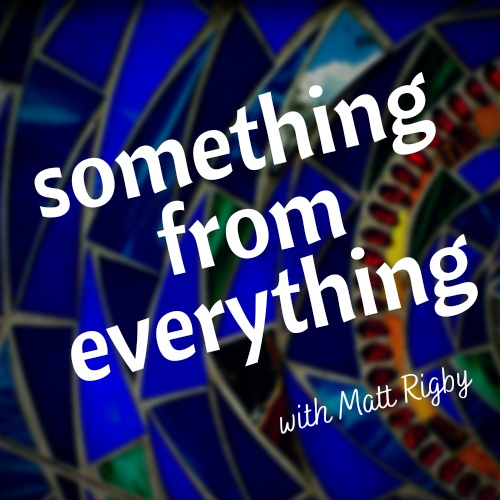
Every week Facebook mocks me.
To support this blog and hopefully develop some conversation around some of the bigger subjects, there is a “something from everything” Facebook group, which basically just alerts members when I’ve finally posted something on the website.
Each week Facebook offers helpful behind the scenes insights. How considerate of them! How many people clicked that link!? Who scrolled through your website!? Who hovered over the article and then remembered that Facebook is the productivity killer and closed the window?
Recently, it’s been a bit of a broken record. “No new likes this week! Post something you lazy writer!” (or something like that). It’s all there, encouragement and shame, along with Facebook’s incredibly generous offer to ‘boost’ my posts and introduce it to new audiences. For a small fee.
Now, no disrespect to Facebook and that particular business model. A friend of mine in marketing once related to me that for all his marketing magic and skill set, there is still a direct correlation between money spent and eyeballs seeing a thing. This is no different.
If fact, if I was selling a thing, then I’d really want to know about these metrics!
Let’s say I had a home based business. Let’s say I had a big hairy dog that loses about half his weight in fur every couple of months. Let’s say I decided to make miniature knitted doggie dopplegangers out of the excess shedding. And let’s say I wanted to sell this disgusting (and intriguing!) abomination.
(By the way, this is one thing I love about the internet. When I first wrote that line about making a dog-hair miniture, I didn’t know it was a thing. But then I searched for it, and of course it is…)
I might want to study all the variances on likes and clicks and appropriate keywords. And I’d be all over a chance to boost my exposure. Maybe people don’t know that you can make things out of your dog’s disgusting discarded excess hair. Maybe I don’t know how much a fine product like that would be worth, or how big the audience is for such a conversation starter. In that case, would happily exchange money for eyeballs…
…And then dog hair for money.
Writing is a bit different. When I’m staring at a metric constantly reminding me that my group hasn’t gotten any likes this week, a few (or a lot) more eyeballs seems attractive. But why? What’s the end result? A few more likes? A few more comments? All of that is appealing, but not important. And when you’re bombarded with the wrong metrics, that can be easy to forget.
There are a lot of other examples of looking to the wrong metric, but I’ll focus on another one on Facebook.
A few years ago I tried to get a book club together. It was born out of very similar desires as this blog. Gather some friends around some big topics, try to engage in some honest conversation. I picked a book that was shooting for the stars, asking the question of how to become wise. How to take that wisdom and live a life that mattered. I set up a schedule with questions we could answer. I set up an online group page where we could interact with each other’s comments. And at the conclusion I figured we could get together over a meal to celebrate and discuss in person.
It all fell flat. An online forum of some, then one. (You might notice the preceding paragraph had a lot of “I” s in it.)
It took me another full year to finish that book. It was great (still is), but I was soured. Soured by the whole en devour falling flat.
In my frustration, I vented to a close friend. He didn’t console me (strangely, few of my friends massage my bruised ego…)
“Why should people care about your thing?” he said (a little bluntly). “People are overwhelmed with their own stuff, why should they pile on yours’?”
Like many unwanted truths, this was of little value at the time.
Time though, would show him to be correct. Everyone did have their own stuff going on that summer. Everyone was (and is) busy. And the value of something is very much in the eye of the beholder, and very much in the beholder’s valuation at that moment.
What’s interesting for me is how I stopped reading that book. The book’s quality didn’t change. When I sat down with it I was highlighting whole paragraphs (dangerous work, that – all the pages get coloured yellow), writing in margins, talking about it with anyone who would listen.
But my metric of success was starting a thing. Online discussion around a book and group of topics I had a lot of interest in. My metric could have been simply enjoying the book and looking for the wisdom it could speak into my life. But I valued the former and neglected the latter.
Currently I’m listening to a recording with Parker Palmer, the Quaker activist, writer and speaker. Though technically an audiobook, it’s really just hours of conversation with Parker and his interviewer. Early in the conversation, Parker relays one of his favorite wisdom teachings from a Taoist in 200 BC. He relays the story of a wood carver who is asked by a prince to create a great wooden sculpture to suspend the village bell from.
The village bell is an object of great value, beauty and ceremonial worth. The wood carver has over 50 years of experience, and is the best of his trade, but he is afraid at the summons to create such a thing. He withdraws from the village, and when he returns with the sculpture, it is a work of such beauty that the people accuse the spirits of doing the work for him, judging that no human hand could produce such work.
In explanation, the wood carver simply stated that he went away, and committed to free himself of the desire for gain or success, praise or blame. He withdrew and fasted until he was collected by the single image of the carving in his mind, and then went into the forest to see trees in their natural state, to find the willing partner that contained such a sculpture within it.
(or at least that is my third hand account of the tale, Parker Palmer is relating this from memory during the interview).
Parker Palmer speaks of this concept as the work before the work. The internal work of getting ready. He identifies that the wood carver strips everything away that doesn’t belong in himself, long before he picks up the chisel and begins to strip away the wood.
And this brings me back to the wrong metric. The wrong metric can be a lot of things, and I’m willing to bet that they are almost always more accessible than the right metrics. I’d even go as far as to say that the right metrics are often hard to discern. For the wood carver, the wrong metrics would include trying to recreate a similar sculpture to one he had completed in the past, or a design that he feels would please the prince. The wrong metrics actually include a vast number of things, but the carver cuts through all those potential missteps by preparing himself. His desire for gain or success, praise or avoidance of blame, these are the wrong metrics, and he knows it.
And that’s why the ticker on facebook, or the empty book study forum are the wrong metrics. Because behind them is the desire for gain and success, praise or avoidance of blame. In both cases I wanted to create a beautiful carving, but I didn’t strip away everything that doesn’t belong from myself first. I didn’t do a good job of work before the work.
Now obviously you can run in circles with preparation. ‘The work before the work’ is a big concept, and everyone needs to start somewhere.
Emptying yourself of the desire for gain and success, praise or blame is a life’s work. But it is a good north star.
And failures make great teachers.

October 26, 2017 at 3:59 pm
You make some good points. Your example of Facebook’s metrics is apt inasmuch as Facebook serves up a buffet of largely useless stats, presumably under the assumption that they’re important. Heck, even the number of “Likes” I get doesn’t mean much of anything. It’s only when we’ve determined the why and how of what we’re doing that we can measure how well we’ve accomplished our goals. Your Taoist sculptor is only able to produce magnificent art once he is able to disconnect himself from the need for superficial adulation and dedicate himself to the goal with single-eyed purpose. I taught a lesson to a science class today where we discussed how the health of a frog in a pond can be used as a metric for the health of the entire ecosystem. The pond and its surroundings might be lush and green, but the effects of heavy metal poisoning will be measurable in a frog long before toxicity reaches ‘scorched earth’ levels. The frog’s health is the useful metric, not how much green is around the frog. You actually have to muck around and find a frog to figure it out though.
I’ve learned that the greatest happiness and fulfillment in my life has been to carefully determine what will be of greatest value to me, and then to pursue those things. The number of people who upvote my goals isn’t terribly important, and neither is the number of people who think it’s a bad(or good) idea. I suppose if my goals include spreading a message or product to a large number of people, then Facebook might provide me with something useful. But as an individual it’s largely unimportant, and I feel no need to change the world with my peculiar ideas, or sell something to a great many people.
On another note, finding a group of people to discuss big ideas and tough issues with is a gold mine. The problem is that such people tend to be busy, useful, and probably want to discuss their own big ideas. It’s a tough one. I envy the intellectual elite of the western world who seem to be able to devote a lot of time to sitting down with other smart people so they can have great discussions.
October 27, 2017 at 10:48 am
Thanks Ryan. Your response was very thoughtful (in the true sense of the word) and appreciated.
I agree wholeheartedly with your assessment that what brings you the most happiness and fulfillment is to pursue the things that align with your greatest values.
I just think most people (and myself included an unfortunate amount of the time) don’t spend the time / put in the effort/ have the clarity to determine what those things are. Often I feel I’m circling values. Something makes me come alive, something demands a greater share of my attention, but it’s difficult to place my finger on what it was in particular that set off that reaction.
I also absolutely agree that it is only a very select few (the intellectual elite) that have the liberty of sitting down and having great discussions. Or at least it is the very elite who have the time/space/resources to have those conversations recorded and distributed. But I don’t necessarily think intellectual elitism is necessary. I actually think that hard work of knowing your value set might be the more important missing piece for a lot of great conversation.
Thanks again for the reply.